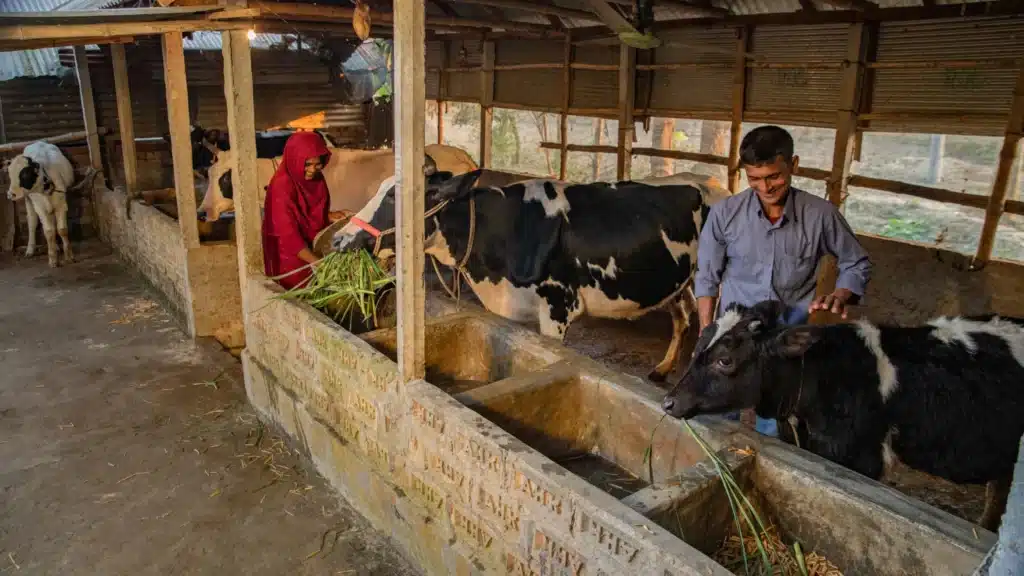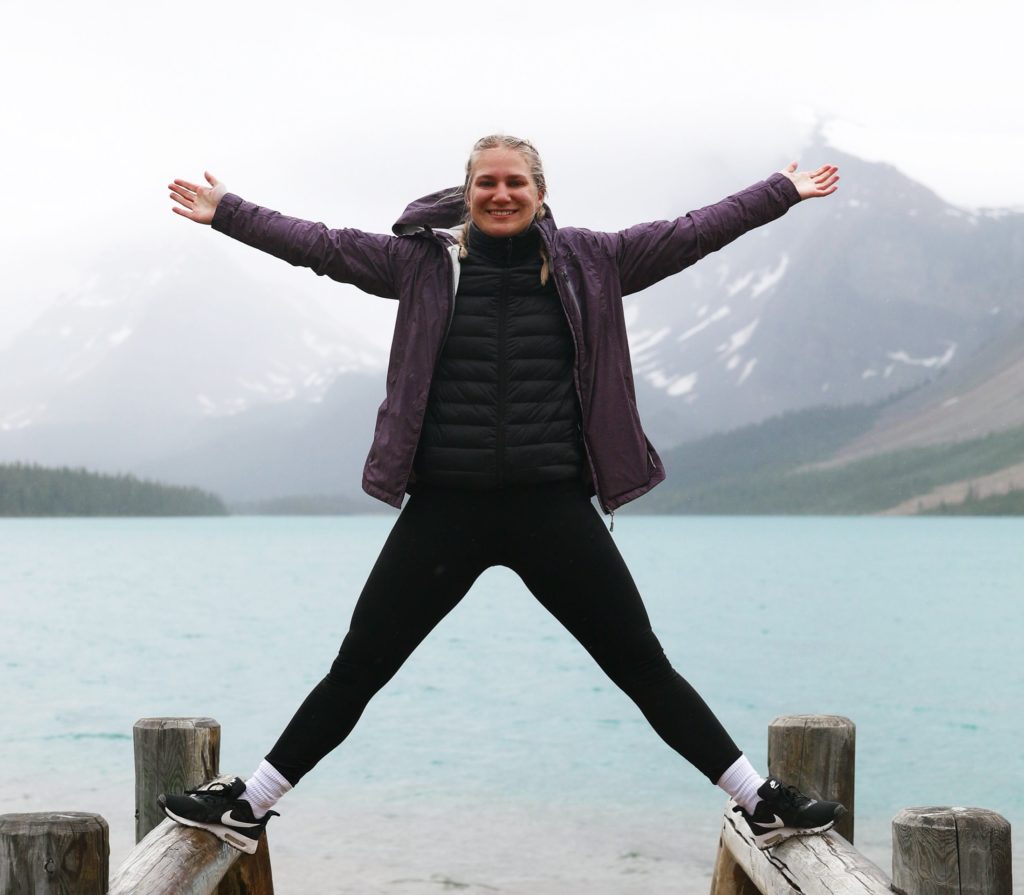We know global champions like you are passionate about a multitude of issues, like reducing poverty, stopping hunger, and boosting climate resilience in the face of climate change. Luckily, our partner Heifer International is doing all of the above at once.
Using innovative technologies, Heifer works with farmers to ensure they earn a livable income and feed their families — all while practicing sustainable techniques. Irrigation systems, solar panels, and biogas plants are just a few of the innovations implemented along with trainings for how to best use them. That way, farmers in these communities are producing efficiently without wasting limited resources.
Below, learn more about four outstanding people Heifer International empowers to be climate champions in their communities. Then, be a climate champion yourself by making a donation to Heifer International through your workplace giving program.
The following are excerpts from Heifer International’s website, introducing you to four eco-champions.
Meet the climate heroes
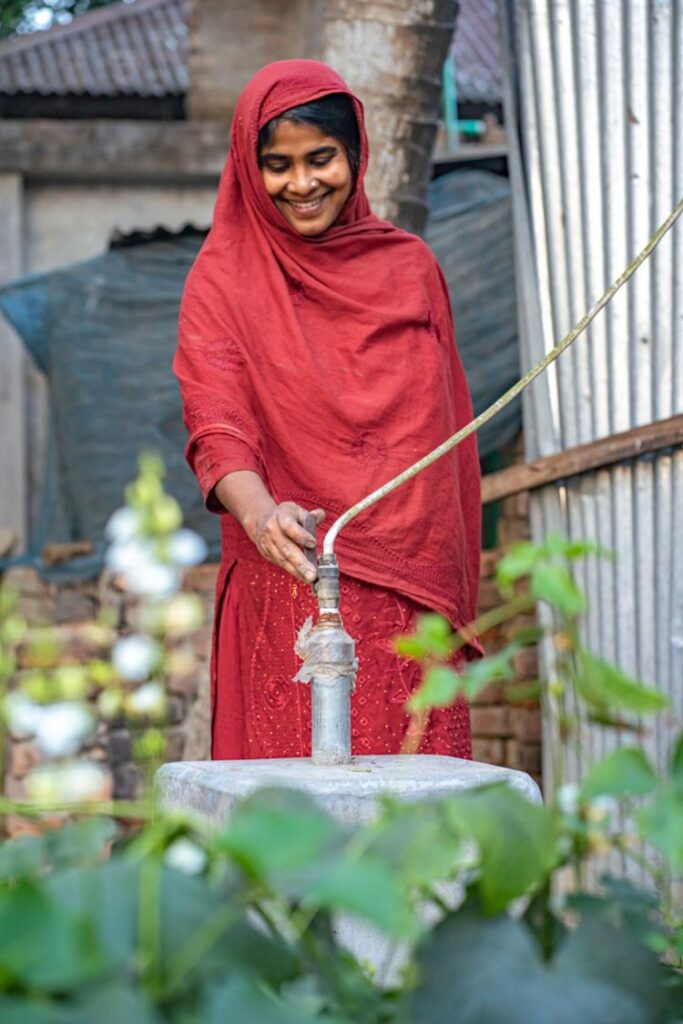
Who: Aasia Begum
Where: Bangladesh
Challenge: Since her marriage at 14, Aasia’s life has been a battle against poverty and unemployment, with her days eaten up by traditional cooking methods that devoured her time and compromised her health and the environment.
Solution: Aasia was one of several households trained on biogas systems by Heifer’s Strengthening Beef and Goat Market System project, which aims to assist 34,500 smallholder farmers in Bangladesh to achieve sustainable living incomes. She and her family received a unit once they understood how to operate the equipment, as well as maintain it.
Outcome: With this leap forward, Aasia now channels her energy into entrepreneurial ventures, significantly enhancing her farm’s output and profitability. These endeavors, supported by Heifer’s agricultural and business training, have allowed her to diversify her farming activities to include cow fattening, goat rearing and cultivating grass to be sold as fodder. She also sells excess organic fertilizer byproduct from her biogas setup.
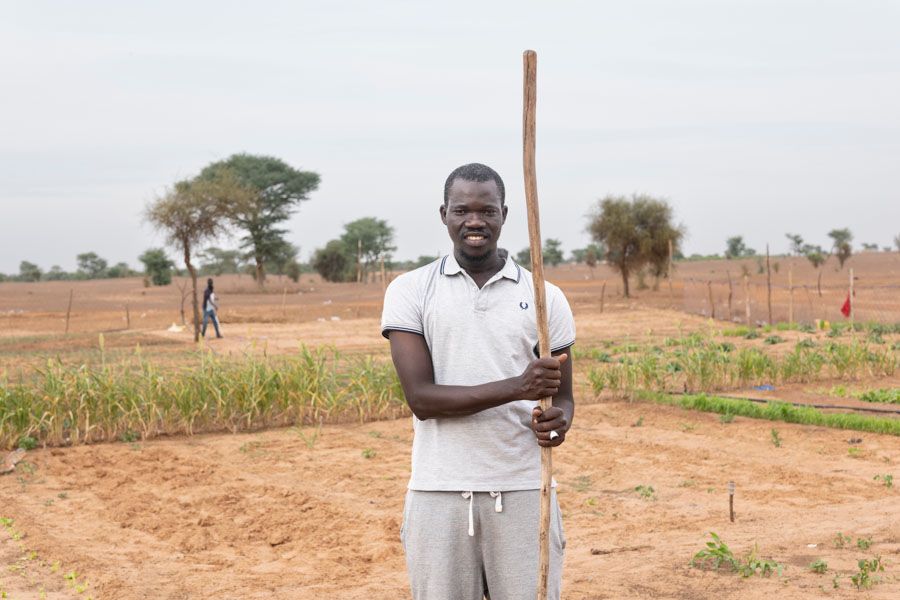
Who: Ismaila Gning
Where: Senegal
Challenge: While 60 percent of Senegal’s workforce is engaged in agriculture, the country is prone to increasingly frequent and harsh droughts, desertification, land degradation, rising temperatures, heavy rainfall and worsening pests and diseases, as well as flooding and erosion due to its location on Africa’s western coast.
Solution: Within a year’s time Ismaila received a suite of support that, he explained, has given him optimism about building a livelihood at home, in farming: short-cycle seeds better adapted for the drier climate; technical training in climate-smart agricultural practices; and a mobile messaging service that sends weather and market information to his phone, so he knows when to plant and how much he should charge when it’s time to sell his harvest.
Outcome: Now resting for a moment in the shade of a spindly tree, Ismaila scans the land in front of him, a maze of seedlings, each tender stalk surrounded by a shallow trench conserving the water he’s just poured. Where he once saw uncertainty, he suggests, he sees possibility.
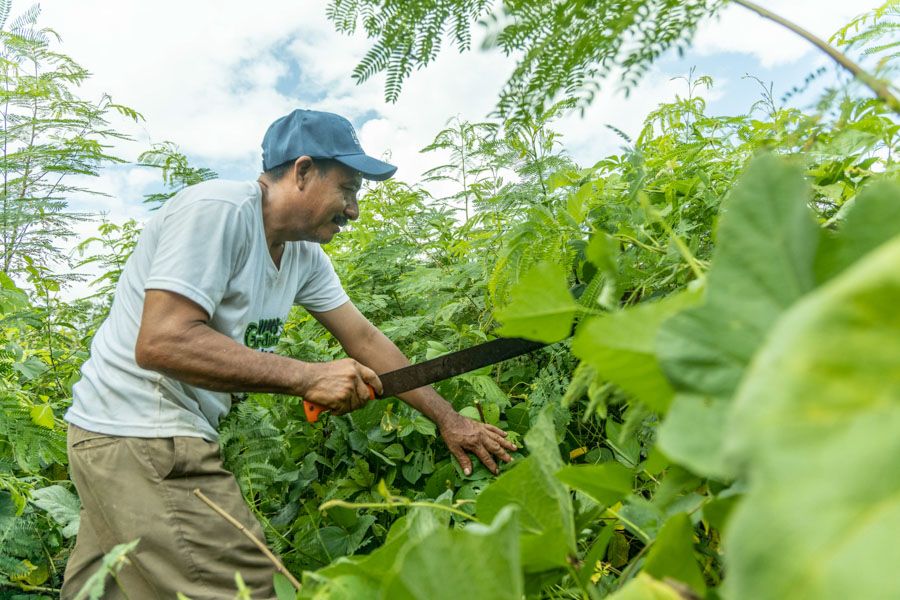
Who: Ricardo David Kumul Canul
Where: Mexico
Challenge: The Yucatán peninsula lies in the path of many Atlantic hurricanes, which increase in frequency and intensity annually from June through November, threatening the livelihoods of the region’s farmers. And with last year’s arrival of El Niño, a climate pattern that brings warmer sea temperatures to the Pacific Ocean and triggers extreme weather events across the globe, there is much uncertainty about the livelihood integrity of farmers like Ricardo.
Solution: Through the Milpa for Life project, which trains smallholder farmers in Yucatán and Campeche states on best practices to improve milpa productivity and household income, and sustainably manage land, Ricardo learned how to identify the most appropriate corn plants for collection and preservation, selecting the best adapted seeds for his region to build resilience in the face of extreme weather events.
Outcome: In the shadow of an unpredictable climate, these Indigenous seeds, meticulously cultivated by Ricardo and the other Seed Guardians to grow well in current conditions, are the connecting thread between a vibrant history and a resilient future. Once mature, the towering stalks are the foundation of the harvest he relies on to feed his family.
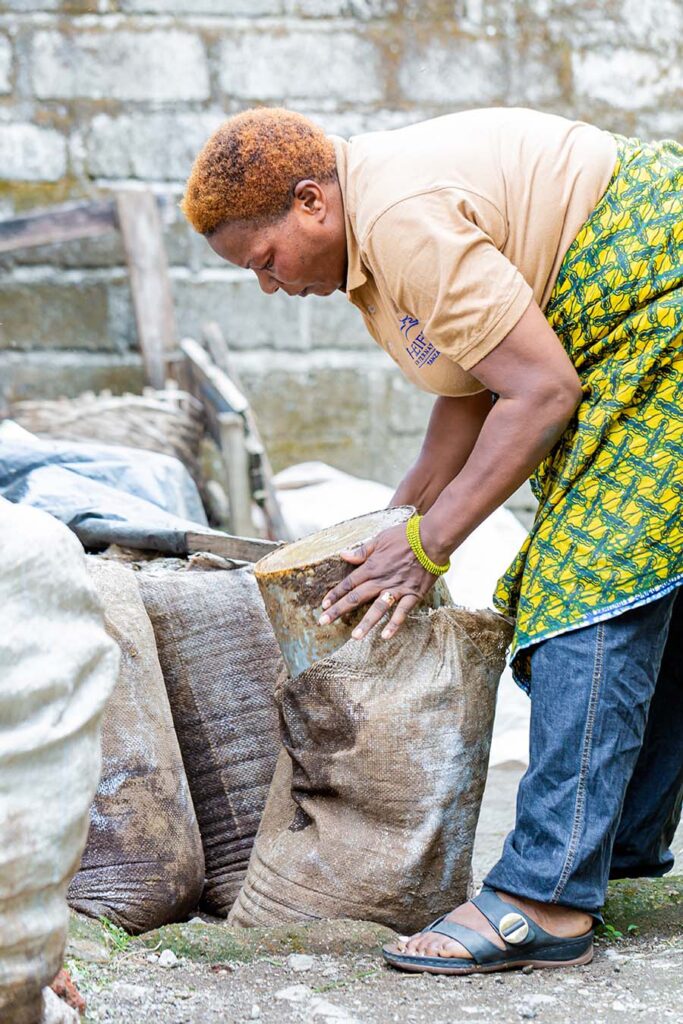
Who: Emmy Maseta
Where: Tanzania
Challenge: Emmy juggles her livelihood and other commitments in a region where farmers struggle: to coax pasture to grow from parched, degraded soil; to find reliable markets for their milk; to store and transport their milk safely; to get loans, training and other assistance.
Solution: For Emmy and other farmers in Tanzania, resilience looks, in part, like a Heifer International project aimed at increasing the milk yields, and incomes, of smallholder dairy farmers.
Outcome: The groups also organize trainings, often on sustainable agriculture practices, such as improving animal nutrition to increase milk yields and better the animals’ quality of life; using crop residues — the plant materials left after the harvest, such as stems, leaves and husks — to feed cattle; using manure to fertilize crops; and implementing pasture plots for grazing, which can reduce soil degradation and erosion and improve grass production.
Core to Heifer’s work around the world is supporting farmers while mitigating and adapting to climate change. Everything they do centers on helping farmers and their families earn viable incomes and produce enough food to keep hunger at bay while thinking about their broader connection to the environment.
These principles shine through everything Heifer does and the people who participate in the programs. It takes a lot of work to be a successful entrepreneur and overcome poverty. It is even harder to do those things and worry about climate change. Luckily, Heifer knows that sustainability and prosperity go hand in hand. For climate heroes like the ones you met above, a promising future is possible.

